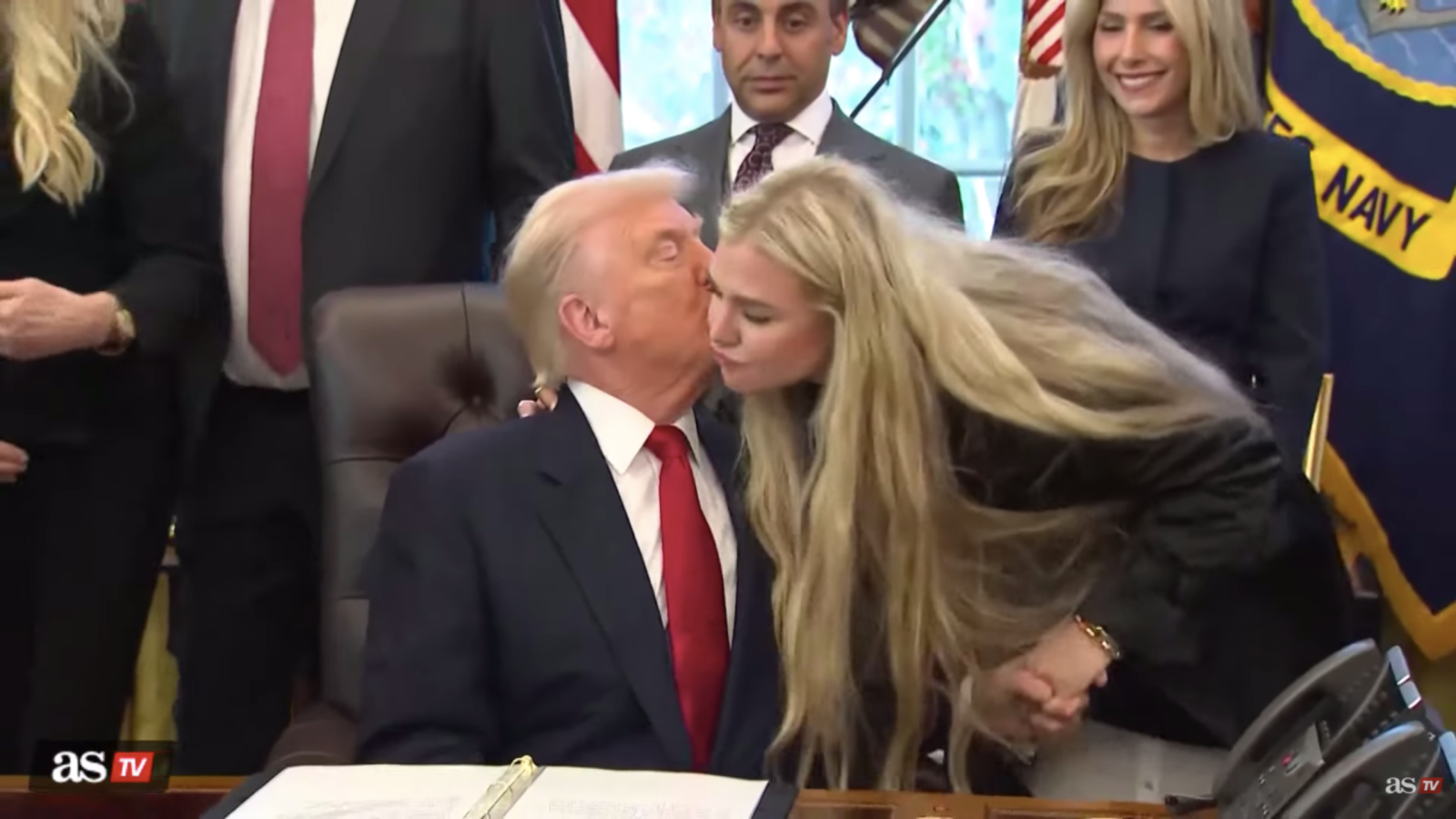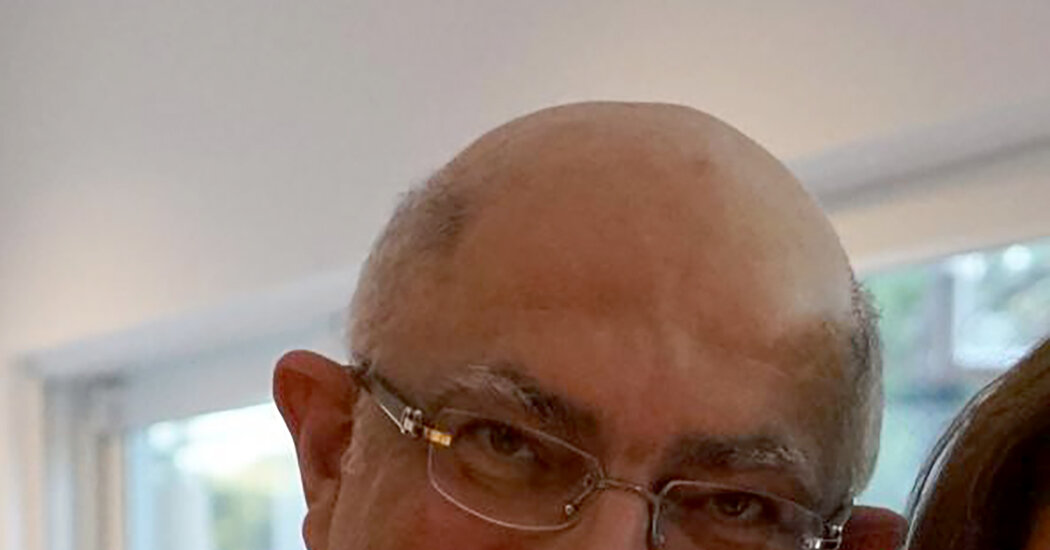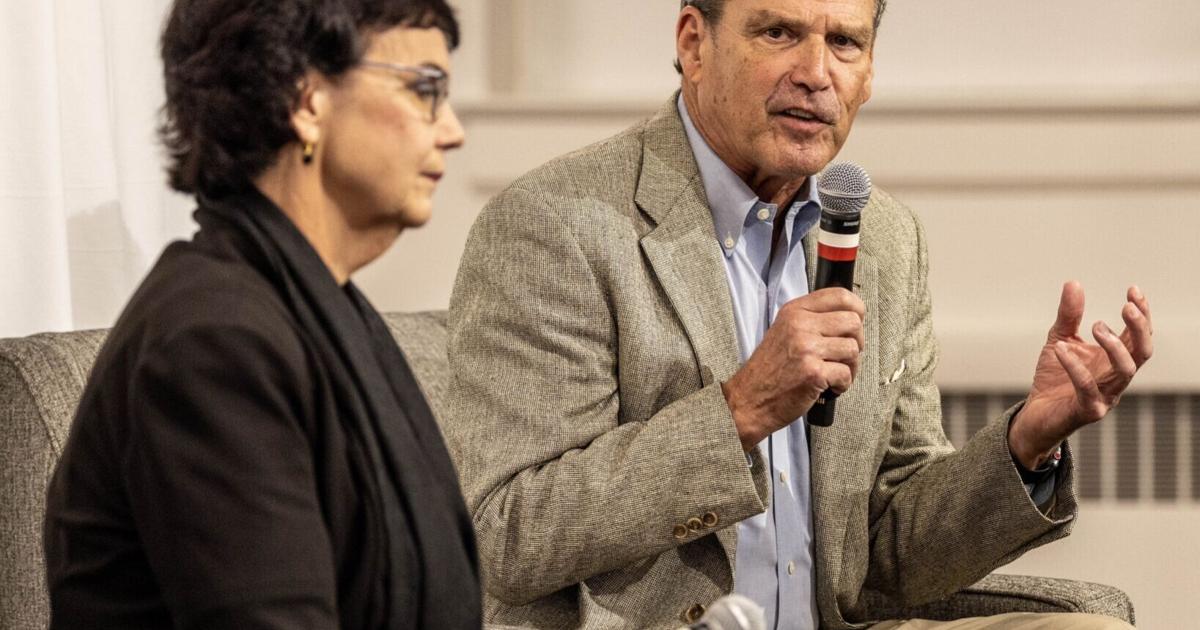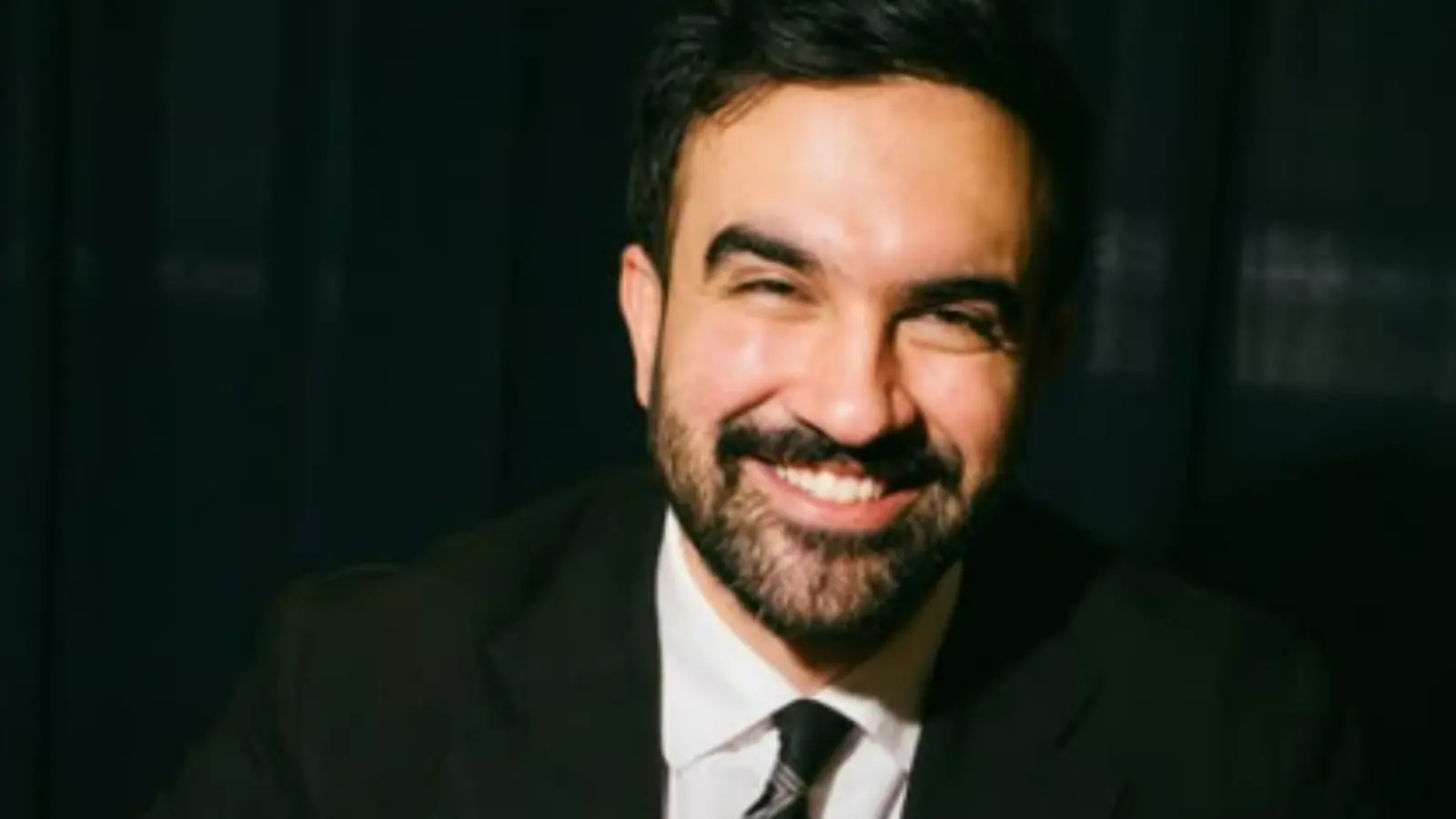Copyright NBC News
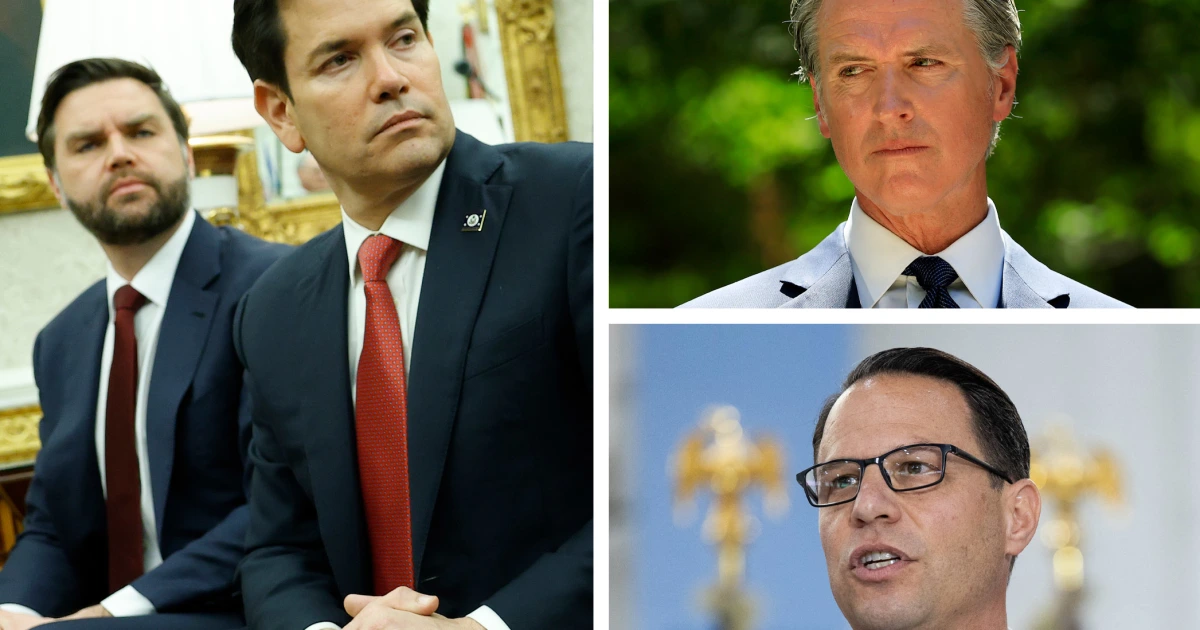
President Donald Trump has 38 months left in office and — as his occasional pining about an unconstitutional third term attests — is loath to be a lame duck anytime soon. But the quacking from others has begun. Democrats scored resounding victories in elections last week as voters agonized over high prices and a federal government shutdown that paused paychecks and disrupted food aid for low-income Americans. The results put Republicans, especially those interested in succeeding Trump in 2028, in a bind over how to respond to growing affordability concerns without overstepping a president who remains popular with their base. “The president has done a lot that has already paid off in lower interest rates and lower inflation, but we inherited a disaster from Joe Biden and Rome wasn’t built in a day,” Vice President JD Vance, whom Trump has identified as a potential heir to his MAGA movement, wrote on X the morning after the elections. “We’re going to keep on working to make a decent life affordable in this country, and that’s the metric by which we’ll ultimately be judged in 2026 and beyond.” Vance has been loyally and carefully restrained where others have not. Rep. Marjorie Taylor Greene, R-Ga., has accused Trump of focusing too much on foreign policy. Greene, who described as “baseless” a recent report by NOTUS that she is eyeing a White House bid, also cast last week’s elections as a warning. “A lot of Republican voters who turned out big in 2024 feel disenfranchised right now and don’t feel motivated to go vote,” Greene said in an interview with NBC News. Then there’s Sen. Ted Cruz, R-Texas, who has harbored presidential ambitions since losing the 2016 GOP nomination to Trump and is making moves to stand out from the MAGA crowd. Cruz recently positioned himself against Trump by criticizing Federal Communications Commission Chair Brendan Carr’s threat to police remarks that late-night host Jimmy Kimmel made about the assassination of conservative activist Charlie Kirk. Cruz also waded into an intraparty feud involving the Heritage Foundation and Tucker Carlson — two influential and Vance-friendly forces on the political right — while decrying what he characterizes as a rise in Republican antisemitism. Speaking last week at the Federalist Society’s National Lawyers Convention, Cruz singled out an event Vance headlined for the Kirk-founded Turning Point USA at the University of Mississippi, “where a student got up and asked the vice president a viciously anti-Israel question.” Cruz was not critical of Vance, who answered politely and without dwelling on the student’s more provocative assertions. The tensions reflect the unique dynamics surrounding Trump, whose personality-driven brand of politics papered over so many GOP policy fights over the last decade. But those internal disputes are bleeding through again, with Trump acknowledging that a third term, no matter how much he might like one, is constitutionally off the table. He has suggested that a ticket of Vance and Secretary of State Marco Rubio — who, like Cruz, was a 2016 rival — would be “unstoppable.” “Donald Trump is the heart and soul of the Republican Party,” said Alex Bruesewitz, a Republican consultant aligned with Trump and Vance. “He’s the reason voters turn out. He’s the reason that working-class Americans donate to Republican campaigns, even though sometimes they can’t afford it. We must figure out how to do more, how to be better stewards of these dollars, and motivate Republicans in elections when his name’s not on the ballot.” The challenges of being an heir apparent While Trump has floated a Vance-Rubio ticket, Rubio’s diplomatic role precludes him from engaging in politics the way Vance and others can. It also makes Rubio a central figure in the foreign policy initiatives — including a Middle East peace pact — that have occupied much of Trump’s time while aggravating a MAGA base that would prefer more attention be paid to the economy at home. Vance’s post-election takeaways on X and Trump’s public comments in recent days indicate that the vice president is more prepared to talk about affordability than the president is. In an interview Monday with Fox News’ Laura Ingraham, Trump downplayed economic concerns and described Democratic messaging around the issue as a “con job.” And when a reporter last week asked about a federal court order that the Supplemental Nutrition Assistance Program, or SNAP, be fully funded during the government shutdown, Trump punted the question to Vance, who called the ruling “absurd.” Andrew Bates, who was a spokesperson for President Joe Biden and now works with the Cost Coalition, a group focused on cost-of-living issues, said Trump and his administration have yet to reckon with “how much of a crisis” the affordability issue is for their brand. “The Trump campaign sold the whole candidacy on, ‘You will not believe how quickly we bring costs down,’” Bates said. He added that whenever Trump or Vance pivot to affordability, “it just reminds people you broke that promise to make life affordable in the first months of this term.” Vance aides declined to discuss how the vice president might seek to lead on the issue. Ryan Girdusky, a Republican consultant who worked for a super PAC that promoted Vance’s successful 2022 Senate campaign in Ohio, cautioned that he’s unlikely to wander too far off Trump’s message. “You’re not the president, too,” Girdusky added. “You’re the vice president, so you can only speak within the context of what the administration is going to say. So I can’t say, ‘Oh, he should be saying this, or he should be saying that’ — because that’s not really fair. He doesn’t have the freedom to do whatever he wants to do. You are second to someone else.” Girdusky said Vance is well suited to talking about pocketbook issues, given his working-class upbringing, and believes he would win the GOP nomination if he runs in 2028. But he expects it to be a fight. “Everyone’s expecting JD to have a coronation. He won’t,” Girdusky said. “There’ll be a primary challenge. Wait until Steve Bannon and Ted Cruz debate about Israel at a presidential debate.” Cruz’s crusade, MTG’s moment Bannon, a former top Trump adviser-turned-podcaster with wide MAGA reach, finished a distant second to Vance in this year’s presidential straw poll at the Conservative Political Action Conference. Bannon has insisted that there are plans for Trump to run again in 2028, despite the constitutional barrier and Bannon himself being floated as a candidate. “I think urgency in the White House is just starting to set in,” Bannon said in an interview when asked about the challenges facing the GOP. “Less so sure it’s fully set in.” Bannon added that he sees a larger “defining” battle forming on the right between “broligarchs” in the tech industry and the right-wing populist movement he champions. “You have a lot of people associated with the tech bros right now that are focused on their own political careers and, quite frankly, making money, who have lost the plot here,” he continued. “The plot is that we’re in a fight for our country.” Kirk’s murder in September created a vacuum on the right, with conservative commentators like Bannon and Carlson and more traditional political figures like Cruz fighting for footing as different factions on the right spar to define Kirk’s legacy and grab his mantle. Carlson’s recent interview with Nick Fuentes, who has espoused white supremacist ideology and said he believes the Holocaust was “exaggerated,” ignited further infighting on the right over Israel and antisemitism. Heritage Foundation President Kevin Roberts initially defended the interview as a bulwark against cancel culture while Cruz condemned it as too friendly. Roberts later apologized as the controversy roiled his organization. Cruz, in his speech at the Federalist Society event, suggested that many Republicans are scared to disavow Carlson because “he has one hell of a big megaphone.” “It’s easy right now to denounce Nick Fuentes,” he said. “Are you willing to say Tucker’s name? A Cruz spokesperson declined to comment for this article, referring to his public remarks. On a different side of this divide, Greene’s willingness to criticize Trump and other Republicans has also caught attention. She has questioned the party’s shutdown strategy and pushed for extending Affordable Care Act benefits, which for Democrats had been a sticking point to ending the stalemate. Trump on Monday told reporters Greene has “lost her way.” “Marjorie Taylor Greene is having a moment,” Girdusky said. “She’s having a rebrand, and she’s doing very, very good. She’s been really, really talented in the moment.” Democrats looking to 2028 focus on Vance Democrats see more opportunity in the Republicans’ recent struggles. California Gov. Gavin Newsom, a 2028 Democratic presidential prospect, was one of last week’s biggest winners after voters overwhelmingly approved a Democratic-drawn congressional map that he championed. The new map could help his party gain up to five House seats in next year’s midterm elections and serve as a counterweight to Trump-blessed redistricting efforts in red states. Fresh off the victory, Newsom sharpened his attacks on Vance. Asked in an interview on CNN’s “State of the Union” about Vance’s response that it was “absurd” for a federal judge to order SNAP disbursements, Newsom questioned the “state of mind of the vice president.” He also questioned Vance’s commitment to his religion, invoking the Bible in an unsubtle allusion to Vance’s 2019 conversion to Catholicism. “How do you square the circle when you go to a prayer breakfast?” Newsom wondered. “How do you square the circle? I mean, Old Testament, New Testament? What’s the fundamental thing that connects … John to Matthew to Proverbs? It’s this notion of hunger — feeding the poor, the sick, the tired. It’s not an option. It’s central to advancing God’s will.” Pennsylvania Gov. Josh Shapiro, another possible Democratic hopeful in 2028, also attacked Vance on the issue, using less wholesome language. “He claims to be a person of faith,” Shapiro, who is Jewish, said at a news conference last week when a reporter asked about Vance’s SNAP response. “I know my Bible, and my Bible teaches us that we are to love thy neighbor, and we are to feed the hungry. Deuteronomy says, ‘If you see a person who is in need, you don’t give them a clenched fist — you open up your hand.’” Shapiro apologized “for getting emotional about it, but when I see hungry people in my state who are hungry because of JD Vance’s bulls--- politics, that makes me angry.” Luke Thompson, a Vance adviser, shot back, accusing Shapiro of affecting a Southern accent. “Accusing somebody of being a phony while putting on a drawl is pretty rich,” Thompson wrote on X. A Pennsylvania Democratic operative, granted anonymity to share candid observations about Shapiro’s focus on Vance, said Shapiro’s sharp attack on Vance clarified to them why Shapiro is considered “one of the front-runners for 2028” and that the governor understands the anger Democratic voters feel now. This person added the move underscored a desire from Democrats to move on from Trump and begin to focus on whoever will come next on the right. “Punching down at JD Vance is kind of fun,” this person said. “And Trump’s not out there to protect him, because I don’t know that Trump’s sold on him being the heir apparent yet.”
